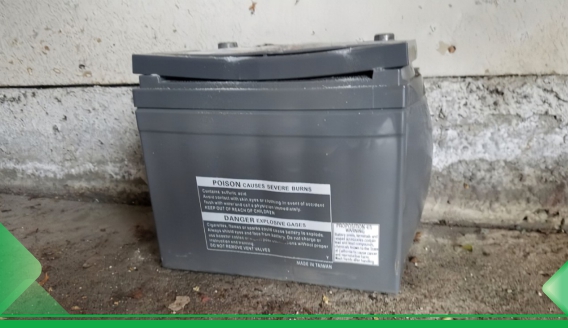The consequences of lead-acid battery bulging can be significant and pose various risks, both in terms of safety and performance.
- Reduced Capacity and Performance: Bulging indicates that the battery has undergone stress and potential damage to its internal components. This damage can result in a decrease in the battery’s capacity to store and deliver electrical energy. As a result, the battery may not perform as efficiently as before, leading to reduced runtime and power output.
- Safety Hazards: Bulging batteries are at risk of leaking electrolyte or even rupturing. Electrolyte leakage can be corrosive and harmful to nearby surfaces, posing a risk to personal safety and property. If the battery ruptures, it can release toxic gases and potentially cause a fire or explosion, posing severe safety hazards.
- Electrical Issues: Internal damage to the battery, such as short circuits or increased internal resistance, can lead to electrical issues. These issues may manifest as voltage fluctuations, unstable power output, or even complete failure to deliver power to connected devices. Electrical problems can disrupt operations and cause damage to electrical equipment.
- Environmental Impact: Lead-acid batteries contain hazardous materials, including lead and sulfuric acid. If a bulging battery leaks electrolyte or ruptures, it can release these harmful substances into the environment, posing risks to ecosystems and human health. Proper disposal and recycling of damaged batteries are essential to mitigate environmental impact.
- Cost of Replacement: If a lead-acid battery bulges and becomes damaged beyond repair, it will need to be replaced. The cost of replacing a battery, especially in industrial or critical applications, can be significant and may disrupt operations or incur unplanned expenses.
In summary, lead-acid battery bulging can have serious consequences, including reduced performance, safety hazards, electrical issues, environmental impact, and replacement costs. It’s essential to handle bulging batteries with caution, discontinue their use immediately, and dispose of or recycle them properly to mitigate risks and ensure safety. Regular maintenance and inspection can help detect bulging early and prevent potential hazards.


